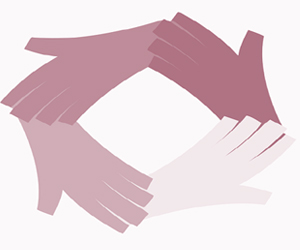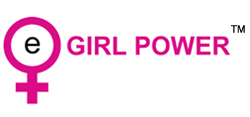- /Home
The Underrepresentation and Misrepresentation of AAPI Females

The Underrepresentation, Misrepresentation and Stereotypes of AAPI Females
In this Educate Activity, eGirl Power Junior Council members learned about:
- • The Underrepresentation of AAPI Females in the Workforce
- • The Misrepresentation and Stereotypes of AAPI Women; and
- • Actions to Overcome Anti-Asian Racism
My initital perceptions regarding workplace inequality has changed significantly after reading the article about the underrepresentation of AAPI females in the workforce. I was surprised to see that Asian American females rank the lowest. Although many do not see Asian American females as underrepresented in the workforce, they are underrepresented in the management roles. For example, the National Science Foundation finds that among the percentage of scientists and engineers doctorate degree holders who are managers, Asian women are the lowest percentile in this category. Stereotypically, Asian American females may not be seen as leaders because they are viewed as more submissive. Unfortunately, these racial biases create inequalities in the workforce. By harnessing eGirl Power's AAPI educational platform, we are able to raise awareness around current AAPI issues that are often overlooked. — Jasmine
I never really considered the fact that I, as an AAPI female, am statistically less likely to be promoted and advanced in my career than a person who is just as qualified as I am. I have always seen instances where people have excelled over me as a result of my own shortcomings, and I am now beginning to realize that it is common for AAPI females to blame the prejudices and injustices of society on themselves. I feel that this is a result of how the struggles and prejudices faced by Asian Americans are rarely ever a topic of conversation, even among socially conscious people and AAPI individuals themselves. Because of this, we are more inclined to ignore injustices when they come our way, and even blame them on ourselves. This is why I believe the work that eGirl Power’s AAPI Initiative is striving to accomplish is so important. AAPI women, including myself, do not have a full understanding of the struggles that lay ahead of them because people are not talking about them. It is important for us to start this discussion, so we can best uplift ourselves and those around us and begin changing these conditions. If we are not aware that there are obstacles in our way, we will never have the means necessary to fight against them. — Anna
By Michelle
During the pandemic, I watched an interesting video from the digital library of the University of South Carolina.* The video is about a 10-year-old Chinese boy named Chan Kim Hock who gave a clear speech in English almost 100 years ago in 1930. He addressed the American’s stereotypes about Chinese people and tried to correct them with facts and good humor. Some of the most common stereotypes were that Chinese people always took on jobs such as being watchmen or running landries. People also thought that Chinese people ate rats and mice. He wished that Chinese people could be policemen, soldiers, firemen, lawyers, doctors, and more.
Today, almost 100 years later, many of Chan Kim Hock’s dreams have come true. Asian Americans today are politicians, veterans, business men and women, Hollywood actors and actresses, athletes, authors, artists, musicians, journalists, scientists and more. But unfortunately, from the outset of the pandemic, Asian hate incidents and crimes have surged in the United States. The attackers have condemned Asian Americans, ignorantly claiming that Asian Americans brought the Coronavirus to the United States. 100 years ago, many Asian Americans would keep silent and not speak up. Today, this generation of Asian Americans are not like their ancestors. They will stand up and speak out for all Asian Americans. We have always played, and will continue to play, an important part in American history and society. Former President George W. Bush recently stated that "immigrants are America's greatest strength.” ** It is crucial for future generations to recognize how Asian Americans, together with other communities, contribute to America.
However, the fight for AAPI equality is not finished. There is still a long way to go for workplace equality, racial justice, and discrimination against the Asian American and Pacific Islander community. I had never realized this problem before, but after joining eGirl Power’s AAPI Initiative Team, I have a better understanding of what the modern world is like. I found that Asian American women are often looked upon as “quiet and invisible.” Surprisingly, only 10 members out of 535 members of Congress and 47 state legislators out of 7,383 state legislators are AAPI women. The fact that AAPI women are overlooked so much and are considered as an “outsider” to some people is devastating to me. We need to step up and take action. Though I’m only a middle schooler, I hope to change these stereotypes.
* Video: Introducing Chan Kim Hock 陈金福
University of South Carolina, university libraries. Fox Movietone News Story 5-769. https://digital.tcl.sc.edu/digital/collection/MVTN/id/7092/rec/2
Chinese subtitles: https://youtu.be/Yf2MQmw1q9U
** Bush, George W. “Out of Many, One: Portraits of America’s Immigrants”. Crown Publishing Group. April 20, 2021.
By Nicole
I originally thought discrimination against AAPIs in the workplace would be more gender based, but I now know race plays an equally important role. Historically, Asian American women have rarely had leadership positions, but I always assumed it was more because they were women, not because they were Asian. However, a few weeks ago, a friend of mine brought up the subject of the fetishization of AAPI women. I had heard about the issue in bits and pieces, but I didn’t really know what it meant, so I went Googling, and it pulled up the Atlanta spa shooting.
Huh.
I’m sure by now everyone has heard of the Atlanta spa shooting- 8 people were shot fatally at a local spa, 6 of which being Asian American women. At first it just seems like the “angry person shoots people to release anger'' thing, but later, the police released a statement saying the perpetrator was sexually motivated. The perpetrator also said he was trying to “eliminate a temptation” when shooting those people. What “temptation” was he trying to eliminate? The Asian American women who worked there.
The fetishization of AAPI women has long been an issue in the United States, but it’s only recently been brought to light. We see it in the Page Act of 1875, where East Asian women were banned from immigrating to the U.S. because they were “immoral,” and we see it in the plays Madame Butterfly and Miss Saigon where AAPI women are painted to be some sort of soft exotic pet. All of these things make AAPI women seem like shiny playthings, free for you to use as you please, always waiting for you obediently, which is definitely not true. AAPI women like everyone else, are human beings with their own thoughts, and are not for someone else to use and discard. However, due to the long history of fetishizing AAPI women, it is hard for many people to see that.
This, of course, affects AAPI women in the workplace. It leads people to believe all AAPI women are compliant and soft, which are generally not thought to be good leadership qualities. Obviously, this is not true, I mean have you seen Asian mothers yelling at their kids (*sobs*), but with this bias ingrained, people tend to choose the other candidate when handing out promotions, even if the other person is less qualified. This leads to AAPI women thinking they’re not good enough, or simply just not right for the job, which can prompt them to quit a job they might have had tremendous talent for.
Many AAPI women are capable of so many great things. While I might be the epitome of failure, that doesn’t mean all AAPI women are. That’s like saying, “Hitler was evil, therefore all white middle-aged male politicians must be evil.”
Wait...
I’m kidding (definitely kidding, please don’t come for me Fox News- that was a joke too), but you see my point. We need to show people that AAPI women are not docile creatures, rather strong women who can and will take on leadership roles. I know eGirl Power is working towards this, so hopefully together, we can.
This is so long AHHHHH. Also, sorry about the jokes. I should probably take them out, but I honestly don't have the heart to.
For me, my initial perceptions did not significantly change as I knew already that female AAPI members were rarely given executive roles, I was still surprised by the statistics in the article. Just looking in my own community, there are seldom any female AAPI leaders, in fact, there are only a few teachers in my entire high school that are Asian at all, with most of them being either men or Asian language teachers. A few of the statistics I found shocking were the increase in unemployment for Asian women with a 13% increase from the pandemic and the fact that Asian women only populate 5.8% of people who have science or engineering doctorate degrees that go on to be managers. As a result of the stereotypes combined from gender and race, there are overwhelming opinions on Asian women that they are not qualified to be a leader, that we are feeble, docile, cute and small, and submissive. And since Asians are a model minority, it is not as frequently discussed, which I think is something we definitely have to change. Bringing awareness to this much-needed topic will help AAPI women populate more executive roles and help us reach our goals in our careers without any implicit bias. — Linsey
Personally I believe that my view and perception has not changed due to the fact that I have had prior knowledge about the inequality and racial injustices in workplaces. However, I do feel informed about the unfairness. For example, I felt very shocked to see the statistics about the increased percentage of unemployed Asian women. In addition, Asian women have been seen to be more "submissive." Due to this dangerous harmful stereotype, a majority of people believe that Asian women cannot lead or have a big role. That they should be a normal workers and that's all they can handle. These stereotypes must be put to an end! The AAPI community and I are tired of being overlooked. With the help of awareness and education, we can stop the normalization of all of this and finally be in a safe workplace. — Ruby

